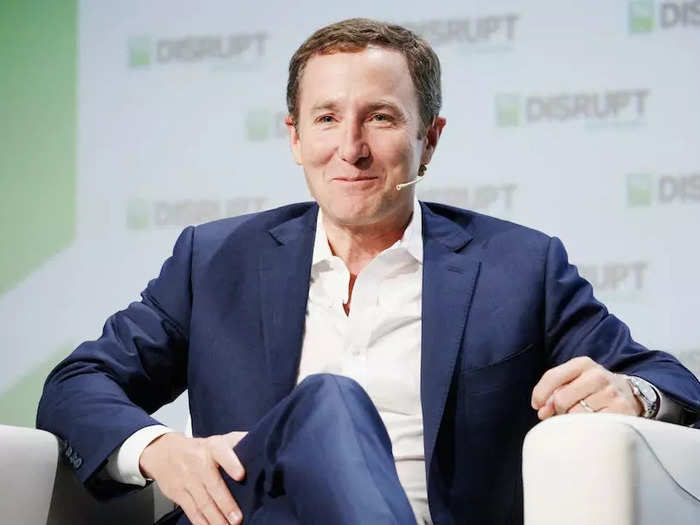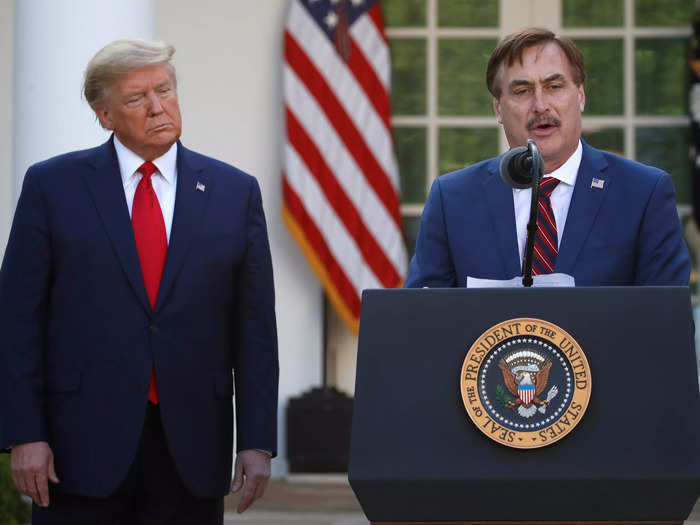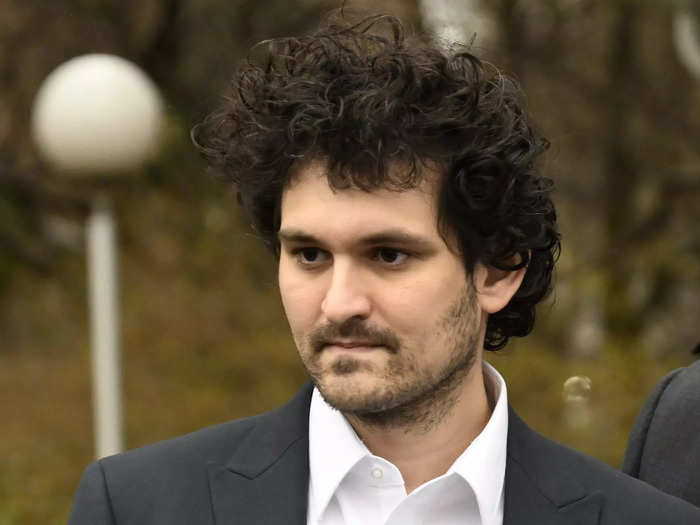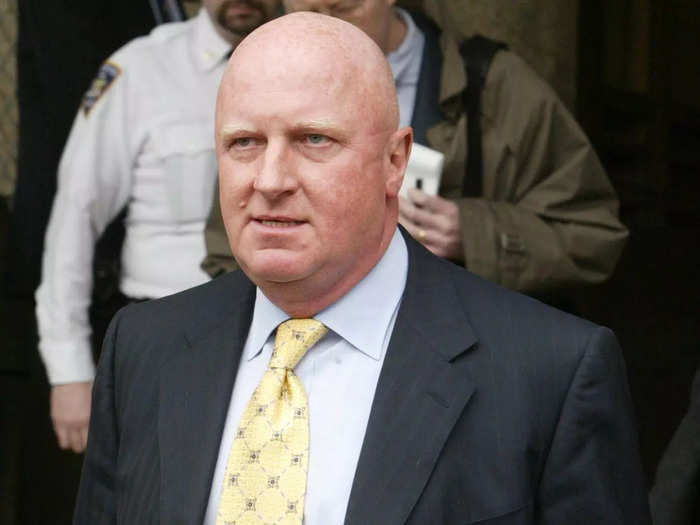Here's how these successful CEOs managed to lose it all

- Once high-powered CEOs have fallen from grace and lost their fortunes.
- Some failed due to market changes, while others faced investigations and federal charges.
The richer they are, the harder they fall.
Just ask John Foley, the former CEO of Peloton, who recently said he had lost his entire fortune.
"My family took it well. My wife's super supportive. My kids are probably better for it, if we're keeping it real," he told the New York Post in August.
He's not the only CEO to make — and lose — millions of dollars.
Here are five former CEOs who lost it all.
Former Peloton CEO John Foley

John Foley founded Peloton in 2012. As its top executive, he received hefty paychecks, including over $21 million in 2019.
During his tenure, Peloton became a household name as sales of its pricey equipment boomed amid the COVID-19 pandemic. The company said it earned $757.9 million in revenue in the first fiscal quarter of 2021.
Revenue jumped to $1 billion later that year, but several hurdles would slow down Peloton's momentum at the end of 2021 into 2022.
Peloton struggled to meet demand due to issues in the supply chain, leading to delays, cancellations, and consumer complaints of broken equipment. Consumers also began to ditch Peloton after COVID-19 lockdown restrictions eased and gyms reopened.
Though Foley managed to become a billionaire while heading Peloton, he lost that status in 2021 after stock prices slumped. He stepped down as CEO in 2022.
Foley told the New York Post last month that he nearly lost everything.
"You know, at one point, I had a lot of money on paper. Not actually [in the bank], unfortunately. I've lost all my money. I've had to sell almost everything in my life," he told the outlet.
Foley said he's had to downsize, which included selling his $55 million waterfront home in East Hampton. He now serves as CEO of Ernesta, a direct-to-consumer rug company.
"I'm working hard so that I can try to make money again… because I don't have much left," he joked. "And so I'm hungry and humble."
Theranos founder Elizabeth Holmes

The rise and fall of Elizabeth Holmes became a media sensation, inspiring a Hulu drama series, The Dropout, starring Amanda Seyfried.
Holmes founded and served as CEO of Theranos, a private healthcare technology company she launched in 2003 while attending Stanford University.
The company amassed a $9 billion valuation by 2015, but an investigation published by The Wall Street Journal exposed deep cracks in Theranos' foundation. The company was struggling with its technology, and its blood-testing machine — dubbed "Edison" — couldn't give accurate results, the Journal reported.
Federal regulators barred Holmes from owning or operating a medical laboratory for two years following the article and subsequent investigations. By October 2016, Theranos had shuttered its wellness centers and lab operations.
Theranos fully collapsed in 2017 as board members left and the money dried up. Holmes stepped down as CEO in 2018 after being charged with fraud. A jury found Holmes guilty of one count of conspiracy to defraud investors and three counts of wire fraud. A judge sentenced her to 135 months in prison.
Holmes's net worth was once $4.5 billion. It's now estimated to be $0.
MyPillow CEO Mike Lindell

Mike Lindell has become an unexpected figure in former President Donald Trump's inner circle, but Americans first met him as the founder and CEO of MyPillow.
Lindell launched MyPillow in 2004. He would appear in his own campy commercials that often aired on Fox News. He met Trump for the first time in 2016 during a private meeting at Trump Tower, according to CNN.
Lindell has fiercely defended Trump from criticism ever since.
He pushed election fraud conspiracies after Trump lost to President Joe Biden in 2020. Dominion Voting System later sued Lindell for defamation in a $1.3 billion suit in 2021. A Dominion employee also filed a defamation lawsuit against Lindell in 2022.
After Trump faced intense backlash for his handling of the January 6 Capitol insurrection, Lindell downplayed the incident, describing it as a "setup" and suggesting Antifa was involved. Five people died that day, and four officers who responded to the insurrection later died by suicide.
Amid the waves of bad press and poor sales, big-box stores like Kohl's and Bed Bath & Beyond pulled MyPillow products from their shelves.
Lindell told NBC News in 2023 that the fallout left him and his pillow company strapped for cash, and he could no longer take out loans. He said he was "canceled."
"We've lost everything, every dime," he said. "They took away my borrowing because of all you guys in the media."
FTX founder Sam Bankman-Fried

Sam Bankman-Fried's meteoric rise in the cryptocurrency industry started when he founded Alameda Research in 2017. At its peak, the crypto trading firm moved nearly $15 million daily between markets.
In 2019, Bankman-Fried and his team successfully launched the crypto exchange FTX, and by 2020, users traded an average of $1 billion across the platform daily.
FTX's star power grew in 2021 by attracting major investors and snagging high-profile deals with athletes like Stephen Curry. By 2022, investors had valued FTX and its US operations at a combined $40 million.
Business was also good for Bankman-Fried, who earned $350 million in profits from FTX and $1 billion from Alameda Research in 2021, according to Bloomberg. His net worth peaked at $26 billion.
However, Bankman-Fried's empire began to crumble in late 2022 when a crypto publication called CoinDesk reported that most of Alamdeda's assets were tied to FTX's in-house token, FTT.
A flood of investors pulled their holdings. The exodus caused Bankman-Fried's net worth to drop to about $1 billion. He didn't secure a bailout, so his companies — including 130 affiliated companies — started Chapter 11 bankruptcy proceedings.
Authorities arrested Bankman-Fried at FTX headquarters in the Bahamas in 2022, and federal prosecutors in New York formally charged him with fraud. Bankman-Fried pleaded not guilty, but a jury convicted him on seven counts of fraud and conspiracy in November, and a judge sentenced him to 25 years in prison in March.
Former Tyco CEO Dennis Kozlowski

Dennis Kozlowski is at the heart of one of the biggest corporate scandals of the early 2000s.
Kozlowski was the CEO of Tyco International, a security system company, from 1992 to 2002 and lived a lavish lifestyle. One year before he stepped down as CEO, Kozlowski hosted a $2 million, weeklong birthday party for his then-wife that became dubbed "The Tyco Roman Orgy."
Kozlowski's world came crashing down in 2002 after a Manhattan-based grand jury indicted for him not paying 8.25% sales tax on $14 million of artwork, according to The New York Times. He stepped down as CEO that year.
That investigation triggered new criminal charges related to Kozlowski's business operations at Tyco.
A jury convicted Kozlowski of fraud, grand larceny, and conspiracy in 2005. A judge ordered him to pay $167 million in restitution and fines, according to the outlet.
He paid $21.2 million to settle the tax evasion charges and spent over eight years in prison for his Tyco-related crimes. He left prison in 2015.
During an interview with The New York Times later that year, he talked about his past and said he's living a simpler life in a 2-bedroom apartment in New York City.
"I was piggy," he said. "But I'm not that person anymore."
Popular Right Now
Advertisement